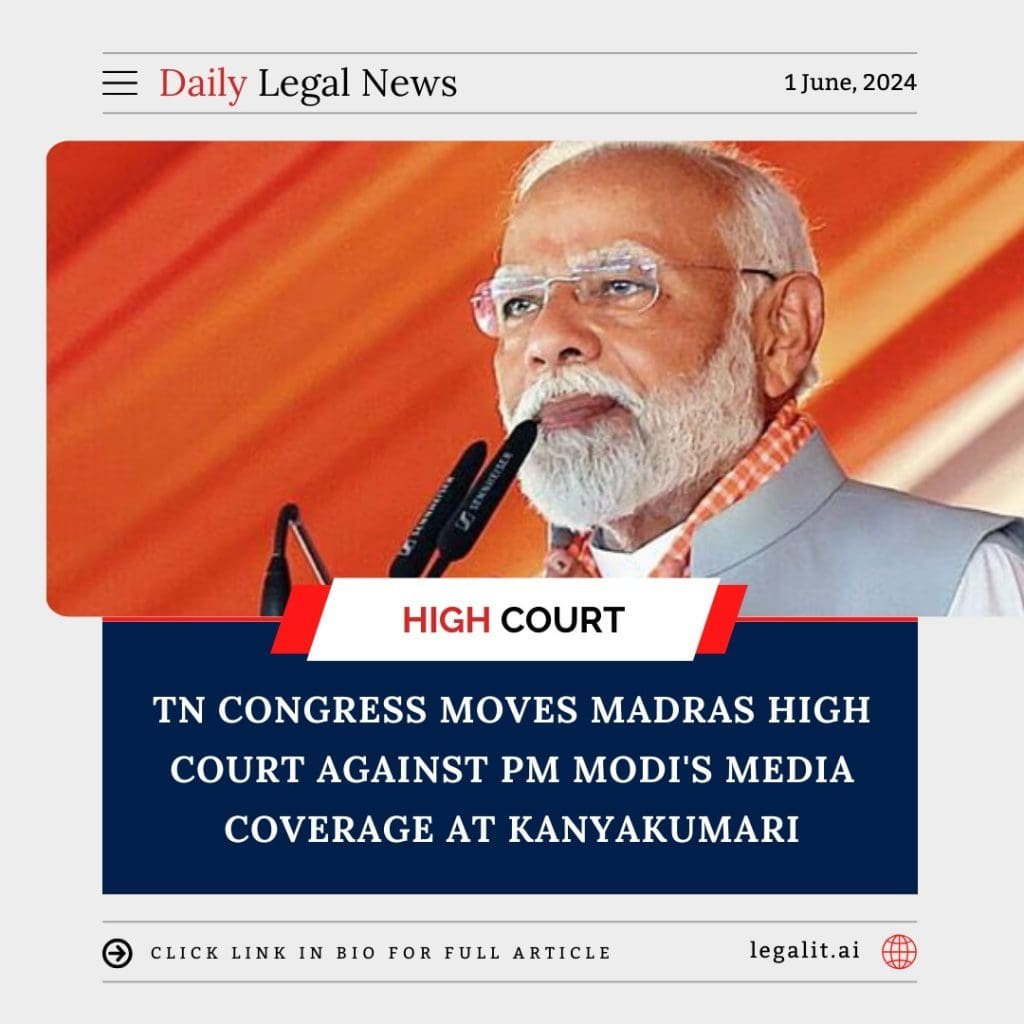
In a significant legal move, the Tamil Nadu Congress Committee (TNCC) has filed a petition with the Madras High Court, asserting that the media coverage of Prime Minister Narendra Modi’s meditation at the Vivekananda Rock Memorial in Kanyakumari constitutes a violation of the Model Code of Conduct (MCC). The petition was filed on May 8, 2024, by TNCC president K. Selvaperunthagai.
Key Points of the Petition
- Allegation of Electoral Influence:
The TNCC argues that the broadcast of PM Modi’s meditation was a strategic move designed to influence voters during the election period. The petitioner contends that this act is a violation of the MCC, which aims to ensure a level playing field during elections by preventing candidates from leveraging their official positions for electoral gain. - Specific Complaints:
The petition points out specific instances where the Prime Minister allegedly made unsavory remarks against Muslims in his election speeches across various states including Rajasthan, Gujarat, and Karnataka. These remarks, the TNCC claims, were intended to create communal discord and sway the electorate through divisive rhetoric【310†source】【311†source】【312†source】. - Request for Judicial Intervention:
The TNCC is seeking the court’s intervention to direct the Election Commission of India (ECI) to issue a notice to PM Modi for his alleged hate speeches and to ensure that no further media coverage of his activities, which could influence the voters, is broadcast during the election period. The petition emphasizes that the leniency of the ECI in handling these matters undermines the integrity of the electoral process. - Implications for Democracy:
By highlighting these concerns, the TNCC aims to safeguard the democratic process from being compromised by the misuse of media and political power. The petition underscores the necessity of strict adherence to the MCC to maintain fair and free elections.
Broader Impact
The outcome of this petition could set a precedent for how election-related activities by high-profile politicians are regulated, particularly concerning their media representation. It also brings to light the ongoing debate about the influence of media on elections and the need for stringent checks to prevent any form of electoral malpractice.